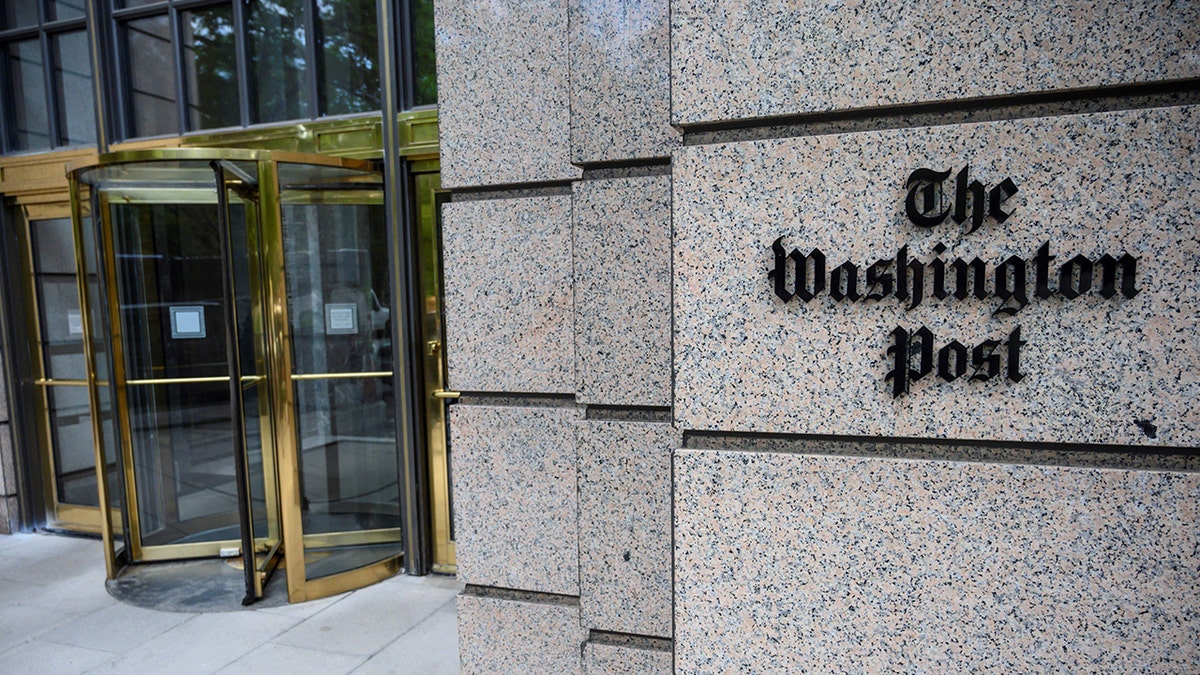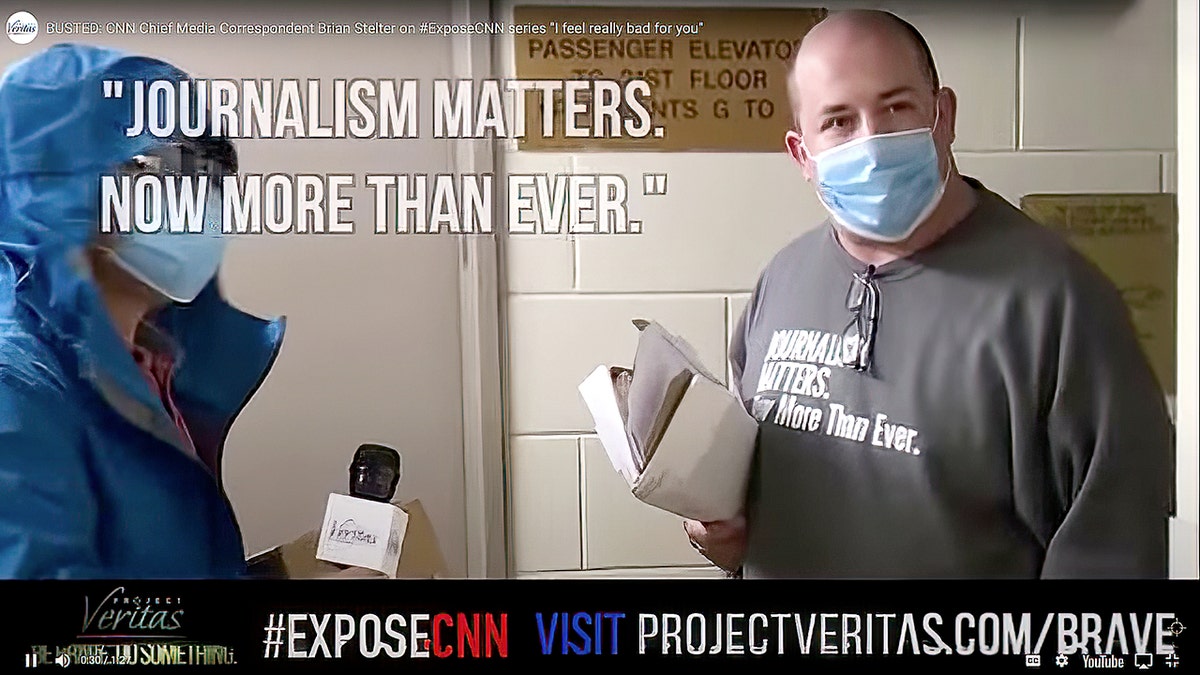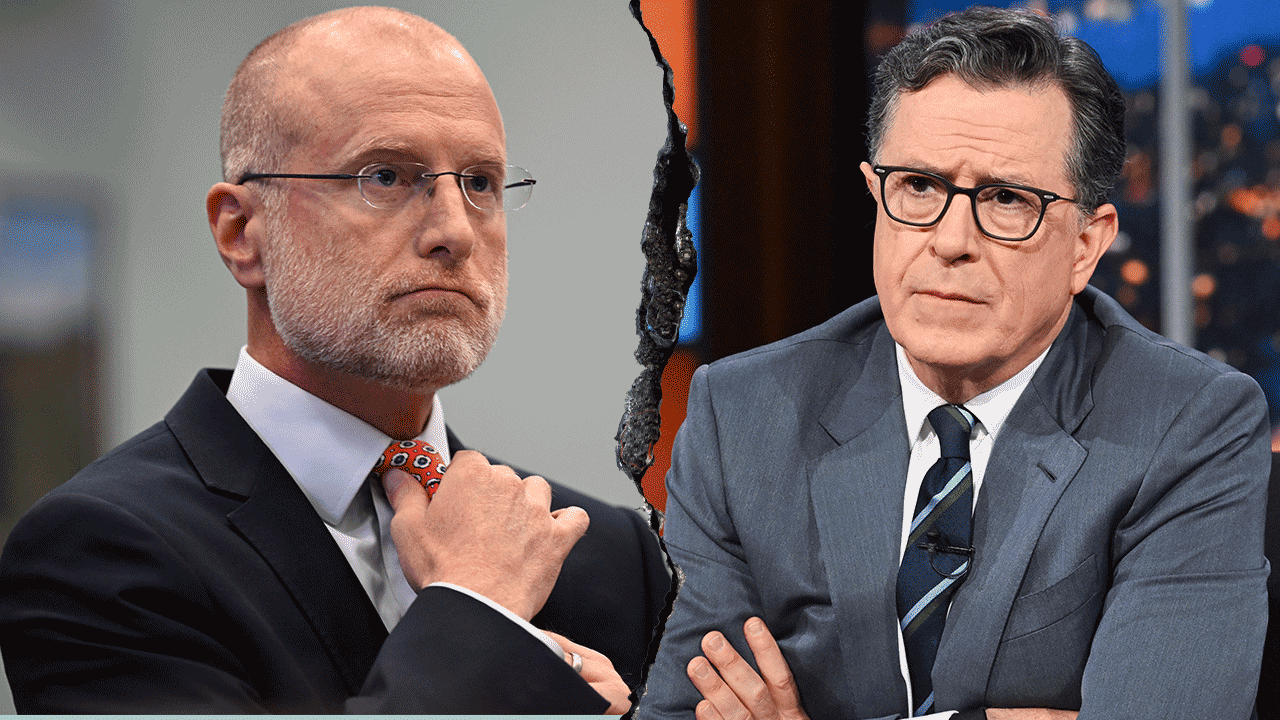Project Veritas' James O'Keefe speaks out in an exclusive 'Hannity' interview
Project Veritas founder describes the FBI raid on his New York home on 'Hannity.'
Washington Post media critic Erik Wemple on Tuesday raised the question of whether the Justice Department overreached by raiding Project Veritas founder James O'Keefe's residence and the residences of his associates – and declared the government "better" be able to provide evidence Project Veritas was involved in criminal activity in order to justify the raid.
The FBI reportedly raided O'Keefe and his associates on Nov. 6 because of the alleged diary belonging to President Joe Biden's daughter Ashley Biden, which ended up in the hands of Project Veritas last fall, though the organization decided against publishing it and turned it over to law enforcement.
Wemple noted the raid has caught the attention of Freedom of the Press Foundation director Trevor Timm.

Media watchdogs have come to the defense of Project Veritas founder James O'Keefe after the Justice Department raided his home. (REUTERS/Andrew Kelly)
"I'm sorry, but this is worrying from a press freedom perspective—unless & until DOJ releases evidence Protect Veritas was directly involved in the theft. Because if there is none, then the raids could very well be a violation of the Privacy Protection Act," Timm tweeted.
"So were the feds justified in conducting the raids? Project Veritas says no — that it was engaging in First Amendment newsgathering activities that should be protected from ‘heavy-handed tactics’ (per its filing)," Wemple wrote, citing a motion to U.S. District Judge Analisa Torres.
"Such activities do enjoy protection under federal law," Wemple wrote.
The Washington Post media critic agreed with Timm that the Privacy Protection Act prohibits searches and seizures of "any work product materials possessed by a person reasonably believed to have a purpose to disseminate to the public a newspaper, book, broadcast, or other similar form of public communication."

Washington Post media critic Erik Wemple on Tuesday raised the question of whether the Justice Department overreached by raiding Project Veritas founder James O'Keefe's residence. (ERIC BARADAT/AFP via Getty Images)
The controversial Project Vertias, which frames itself as a conservative whistleblower watchdog group, has previously released hidden camera footage of network news producers and other public figures making statements while unaware they were being recorded. As a result of its tactics, some critics don’t consider the organization a true journalism outfit – but Wemple doesn’t think that matters.
"Note the law’s agnosticism regarding whether the target may or may not qualify as a ‘journalist.’ It applies to any person – whether O’Keefe or Bob Woodward – who’s out to disseminate information," Wemple wrote. "Which is to say, it protects acts of journalism, even when they’re executed by people whose journalistic credentials may be iffy."
ACLU WARNS OF 'PRECEDENT' SET BY DOJ RAID OF PROJECT VERITAS: 'SERIOUS CONSEQUENCES'
Wemple noted "another set of protections" comes from the Justice Department’s guidelines on the issuance of subpoenas to the media.
"Those provisions historically required top-level Justice Department approval – often from the attorney general personally – to subpoena members of the news media," Wemple wrote, adding that Biden’s administration has strengthened the protections.
"In a letter to the Justice Department, Project Veritas’s attorneys argued that the seizure of O’Keefe’s phone violated those protections," Wemple wrote. "Not so, responded Justice."

Project Veritas once confronted CNN media pundit Brian Stelter to ask his thoughts on a series of secretly recorded videos that featured a CNN technical director discussing how his employer manipulates coverage to fit its liberal agenda.
The Justice Department claims it "complied with all applicable regulations and policies regarding potential members of the news media in the course of this investigation," but Sen. Tom Cotton, R-Ark., has asked for proof.
JAMES O'KEEFE ADDRESSES FBI RAIDS OF PROJECT VERITAS REPORTERS OVER BIDEN DAUGHTER'S ‘STOLEN’ DIARY
Torres, the U.S. district judge who received the filing from O’Keefe’s attorney, "on Thursday issued an order that the Justice Department confirm that it has paused its extraction of data from O’Keefe’s phones," according to Wemple.
"The Supreme Court has ruled that publishing information that had been obtained illegally is protected by the First Amendment, on the condition that the news outlet didn’t participate in unlawful activities and the material was newsworthy," Wemple wrote.
The Committee to Protect Journalists said the government overreached and the Reporters Committee for Freedom of the Press wants the court to unseal documents related to the warrant.
"The Justice Department had better have some goods," Wemple wrote.
CLICK HERE TO GET THE FOX NEWS APP
Speaking to Fox News host Sean Hannity about the raid last week, O'Keefe said, "I've heard 'the process is the punishment.' I didn't really understand what that meant until this weekend. And Sean, I wouldn't wish this on any journalist."
O'Keefe said he was "in a state of shock" as FBI agents spent over two hours searching his apartment, telling Hannity they took two of his iPhones.
Fox News’ Jon Brown and Joseph A. Wulfsohn contributed to this report.










































